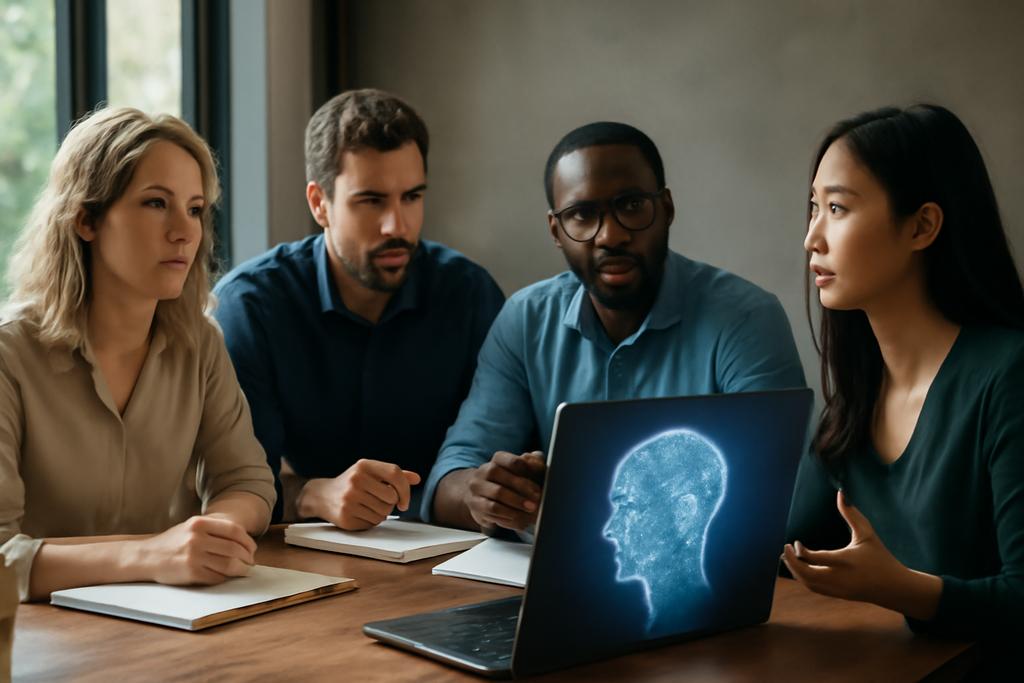The Dawn of AI-Powered Group Decision-Making
Imagine a world where choosing a restaurant for a group, planning a family vacation, or even making crucial decisions in a business meeting feels less like a tug-of-war and more like a collaborative journey towards a satisfying outcome. This isn’t science fiction; researchers at Graz University of Technology, led by Sebastian Lubos and Alexander Felfernig, are exploring how artificial intelligence—specifically large language models (LLMs)—can revolutionize group recommender systems.
Beyond Simple Averages: The Limits of Traditional Group Recommender Systems
Current group recommender systems, often found in basic online poll tools, primarily rely on simple aggregation techniques. Think of averaging everyone’s ratings for a movie or restaurant. While straightforward, this approach fails to capture the nuances of group dynamics. It ignores the richness of human interaction, the power of persuasion, and the complexity of balancing individual preferences.
For instance, a simple average might suggest a movie that pleases most people moderately well, but overlooks the fact that one person’s strong dislike might overshadow the collective lukewarm approval. It doesn’t consider the underlying reasons behind preferences, the compromises made, or the unspoken influences among group members. These are aspects critically important in real-world group decisions, where the process itself can be just as significant as the final outcome.
Enter the LLMs: A More Human Touch to Group Decisions
This is where LLMs come into play. These powerful AI systems, trained on vast amounts of text data, are capable of much more than simple calculations. They can understand and interpret natural language, decipher the context and sentiment behind user input, and even predict the potential outcomes of different approaches. In the context of group recommendations, LLMs allow the systems to move beyond simplistic numerical aggregations and instead delve into the richness and complexities of human interaction.
The research proposes various ways LLMs can transform group decision support. Firstly, LLMs can analyze free-form text feedback, extracting nuanced preferences beyond simple numerical ratings. Instead of just a star rating, a user can say, “I loved the plot, but the characters were annoying.” An LLM could parse this statement, separating the positive aspects (plot) from the negative (characters), and creating a more detailed profile of the user’s preferences.
Secondly, LLMs can facilitate more natural and engaging interactions during preference elicitation. The technology can guide discussions, surface conflicting opinions, and help the group articulate and resolve differences constructively. Imagine a system that proactively identifies silent members, prompts them for input, and subtly guides the discussion toward compromise.
Thirdly, LLMs can generate richer explanations for recommendations. Instead of merely stating an average score, the system can offer a narrative that explains the reasoning behind the choice, highlighting individual preferences and the compromises reached. The goal is to enhance transparency and build trust in the system’s decisions.
Navigating the Psychology of Groups: A Deeper Dive
The Graz University of Technology study also delves into the fascinating psychology of group decision-making. LLMs can leverage insights from psychological models to further enhance their support. They can detect and mitigate biases, such as groupthink (where the desire for conformity overshadows critical thinking) or group polarization (where the group’s decision becomes more extreme than individual preferences).
For example, the system could recognize when a dominant personality is unintentionally silencing other voices and offer alternative perspectives, or flag potentially risky group polarization and suggest more moderated solutions. This level of awareness and intervention could prevent poor decisions driven by unchecked biases.
The Challenges Ahead: Ethical Considerations and Privacy
While the potential benefits are significant, the research acknowledges several challenges. One is the ethical responsibility of ensuring fairness and avoiding bias amplification. LLMs must be trained and deployed carefully to prevent favoring dominant opinions or underrepresenting minority viewpoints, particularly in culturally diverse groups. This includes carefully considering algorithmic bias as well as potential biases in the training data.
Another crucial challenge is preserving user privacy. The analysis of user preferences might require access to sensitive information, and robust privacy-preserving techniques will be necessary. The researchers suggest the need for fine-grained user consent models and intuitive preference management interfaces, ensuring individuals have control over what data is shared and how it’s used.
A Future Where Group Decisions are Truly Collaborative
The research from Graz University of Technology opens up exciting possibilities for enhancing group decision-making. By leveraging the power of LLMs, we can create recommender systems that are not just efficient aggregators of preferences, but intelligent facilitators of collaborative processes. This is a step toward a future where group decisions are more transparent, more fair, and truly reflective of the collective wisdom and diverse perspectives within the group.
The work highlights the potential of LLMs to not merely improve the technical aspects of recommendation but also to deeply consider the human element, incorporating insights from psychology and sociology to address the complexities of group dynamics and interpersonal interactions. The ongoing research aims to make group decision-making a more intuitive, equitable, and insightful experience for all.










